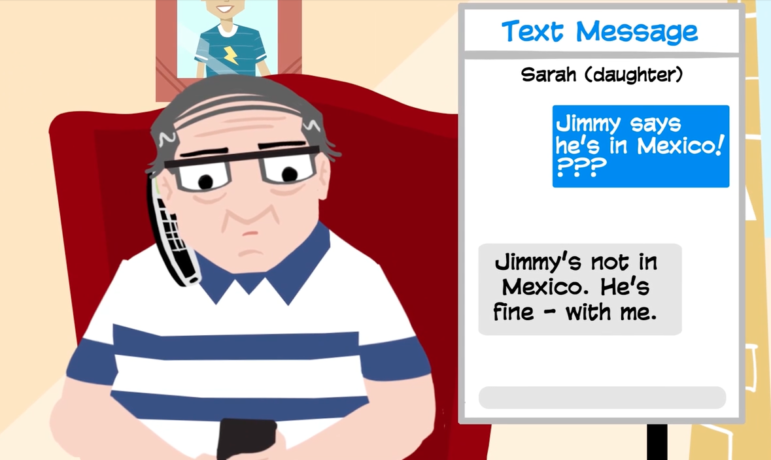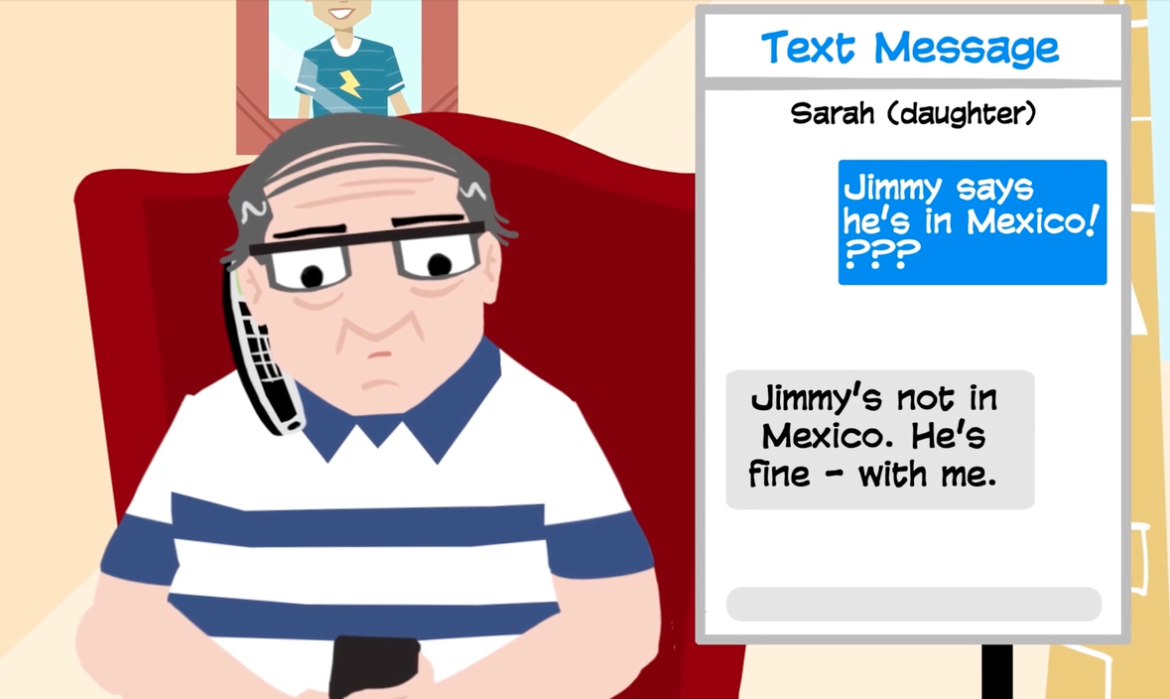Whether it’s a spare can of cranberry sauce or an extra turkey platter, thoughtful Thanksgiving hosts make contingency plans for the holiday. This year, if the dinner discussion veers into controversial territory — like the pumpkin pie vs. pecan pie debate — here’s a suggested topic of conversation you can have at the ready.
— This article is from a post by Lesley Fair on the Federal Trade Commission’s Consumer Information blog. Fair is an attorney in the FTC Division of Consumer and Business Education.
Some people call them “grandparent scams,” but it’s any form of fraud where a scammer impersonates a family member and calls with an urgent plea for emergency cash supposedly to get medical care, pay for bail, or extricate themselves from a dangerous situation. The scammer’s goal is to trick the concerned relative into sending money before they’ve had a chance to think things through.

Image from an FTC video
If your relative can text a family member during the phone call, that can confirm whether or not a relative is, for instance, in jail in some far off place.
With grandparents, aunts, uncles, and cousins gathered around the table, Thanksgiving is the perfect time to warn your family about this form of fraud. The best response to calls of this kind is to resist the urge to act immediately, no matter how dramatic the story may be.
Take the time to investigate whether there really is an emergency. Call the relative at a number you know to be genuine and check the story out with another trusted family member even if (especially if) the caller begs for confidentiality.
Con artists are cagey and have a variety of stock responses to family members’ suspicions – “I know I don’t sound like myself, Grandpa. I’m in the hospital with a broken nose.” or “Don’t tell Mom. Let’s keep this our secret.” Another tactic favored by fraudsters: trying to “sell” the story by enlisting a fellow crook to impersonate a doctor, lawyer, or police officer.
One tip-off that fraud is afoot is an insistence on getting money immediately. Scammers are partial to payment by wire and we warned you recently about their growing fondness for payment by gift cards.
This Thanksgiving before anyone leaves the table, make sure they know that no one in your family will ever call with an emergency request that they immediately wire money, pay with a gift card, or send cash.
Report this form of fraud and any other suspected rip-off to the FTC at www.ftc.gov/complaint.


Pingback: Police: Package With $10,000 in It Arrives at Darien Address, Sent by Elderly Victim of a Scam - DarieniteDarienite